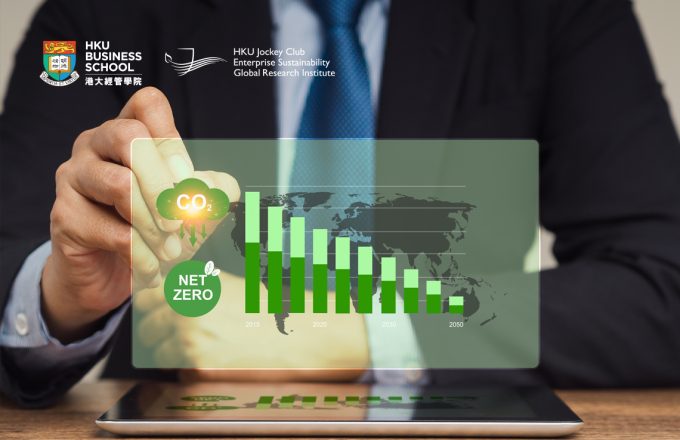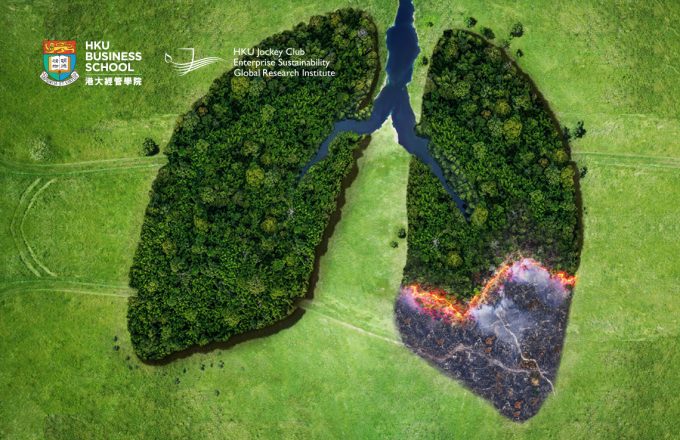
Making sure your vote does not count: Green activism and strategic proxy voting
- Many green proposals get advanced at shareholders’ meetings, but the pass probability is, unfortunately, low.
- But green proposals pass with positive probability even when blockholders are unlikely to share the activists’ commitments to green values and thus would oppose green proposals if they voted as if pivotal.
- Because of strategic voting, an increase in the average level of blockholders’ commitment to green values can reduce the probability that green proposals pass.
- By contrast, the preferences of retail investors, reflected in the reputation costs of opposing green proposals, are reliably factored into corporate decisions: higher reputation costs always increase the pass probability.
- When activists’ preferences become private information, leading to the emergence of pseudo-green activists who initiate campaigns not to generate environmental benefits but to gain monetary rewards by imitating genuine activists, sincere activism is unlikely to be deterred.
- Our results can be extended to consider the effects of proxy-voting reforms or an alternative “crypto-green” setting where beneficial fund owners are brown.
Source Publication:
Jin, D., & Noe, T. H. (2024). Making sure your vote does not count: Green activism and strategic proxy voting. Available at SSRN 4906485.
This paper explores green activist investing, whereby environmentally driven activists launch campaigns to promote green shareholder proposals aimed at reducing firms’ environmental impacts. Before 2017, such proposals were rare and seldom supported by large institutional investors. However, since 2020, their number has surged, averaging 55 per year, ranging from 30 in 2020 to 96 in 2023, with a variable success rate averaging 17%.
The success of green proposals hinges on proxy votes by pivotal voters, mainly large institutional shareholders, who hold significant stakes across many firms. Together, BlackRock, State Street, and Vanguard alone own the largest shares in 75% of S&P 500 firms and cast 25% of proxy votes. These votes are publicly observable.
Hence, this paper models green activism and proxy voting by strategic institutional blockholders who have heterogeneous reputational concerns and varying levels of commitment to green values.
We aim to model green activism in a framework with activists and universal owners as rational strategic actors. In our model, activists have and universal owners might have green preferences, that is, utility dependent not only on wealth but also on the state of the environment. Each owner’s preferences are private information. We use the term green sentiment for the probability that a universal owner has green preferences. Because of “bottom up” pressure from beneficial fund owners, brown owners prefer that proposals fail, but they incur reputation costs when they openly oppose them. We assume reputation costs are small relative to the adverse value effect of adopting green proposals. Thus, if owners “voted as if pivotal,” all brown owners would oppose the proposal. However, owners are rational, and thus, they realize their votes might not be marginal. This effect weakens brown resistance to green proposals.
We focus on Nash equilibrium solutions and refine the set of equilibria by focusing on solutions that maximize the voting game’s potential (Monderer and Shapley, 1996).
Figure 1. Equilibrium strategies and green sentiment

Notes: The figure shows the number of universal owners supporting the proposal when brown (horizontal axis) versus the potential value of these strategies (vertical axis, blue dots). The potential value under the capitulation strategy is shown by a red horizontal line. In this example, with 51 owners, 26 yes votes are needed for the proposal to pass. The optimal strategy is indicated by the highest blue dot, unless it falls below the red line.
The properties of potential-maximizing Nash equilibria depend on the level of green sentiment among shareholders. When green sentiment is high, many universal owners support green proposals, making individual brown owners’ votes less crucial. As a result, brown owners insincerely support green proposals (Panel A of Figure 1). With moderate green sentiment, proposals can be defeated only if all brown owners vote no (Panel B of Figure 1).
However, when green sentiment is low, the situation is more complex. If all brown owners resist, proposals will likely fail by a wide margin, making no vote individually marginal and reducing the willingness to bear reputation costs. In this case, brown owners adopt partial-resistance strategies: those facing the highest reputation costs insincerely vote for green proposals, whereas others resist (Panels C and D of Figure 1). As green sentiment increases, fewer insincere votes are needed to ensure resisters’ votes are marginal, reducing the probability that green proposals pass. Thus, paradoxically, higher green sentiment can lower the likelihood of green proposals being adopted, due to strategic voting effects.
In contrast to green sentiment, increasing reputation costs decreases brown resistance, thereby increasing the probability of proposal success. Additionally, increasing the dispersion of reputation costs—by transferring costs from owners with lower-than-median reputation costs to those with higher-than-median costs—raises the likelihood of proposal success when brown owners would otherwise have resisted the proposal.
Our results suggest activists should concentrate their efforts on increasing the reputational cost from no votes that is borne by marginal universal owners. This finding aligns with campaigns targeting universal owners, such as Walden Asset Management’s 2017 campaign against BlackRock (Copeland, 2024) and green activists’ recent shift toward pressuring institutional investors following proposal failures in the 2024 voting season (Sorkin, 2024). In addition, our framework rationalizes several features of proxy voting on green proposals that appear puzzling under conventional models of shareholder activism:
- Small green activist stakes/no toeholds: Green activists avoid large stakes to prevent internalizing the cost of share-value reduction due to their campaigns, ensuring commitment to green initiatives.
- “Against all odds” green activism: Green activists do not internalize adverse value effects, making their activism a low-cost, long-shot bet, where the wager is the cost of an activism campaign.
- More shareholder rights, less shareholder welfare: When green sentiment is low, insincere universal owners benefit from management removing green proposals from agendas, consistent with findings by Matsusaka et al. (2019).
- Strategic universal owner voting: Institutional investors avoid opposing green proposals when their votes are unlikely to be marginal, as suggested empirically by Michaely et al. (2021).
Copeland, James R., “Index funds have too much voting power: A proposal for reform,” Manhattan Institute January 2024.
Matsusaka, John G, Oguzhan Ozbas, and Irene Yi, “Can shareholder proposals hurt shareholders? Evidence from SEC no-action letter decisions,” Evidence from SEC No-Action Letter Decisions (April 1, 2019). USC CLASS Research Paper No. CLASS17-4, Marshall School of Business Working Paper, 2019, (17-7).
Michaely, Roni, Guillem Ordonez-Calafi, and Silvina Rubio, “Mutual funds’ strategic voting on environmental and social issues,” European Corporate Governance Institute–Finance Working Paper, 2021, (774).
Monderer, Dov and Lloyd S Shapley, “Potential games,” Games and Economic Behavior, 1996, 14 (1), 124–143.
Sorkin, Andrew, “Big oil’s winning streak forces activist investors to regroup,” New York Times, May 2024.







